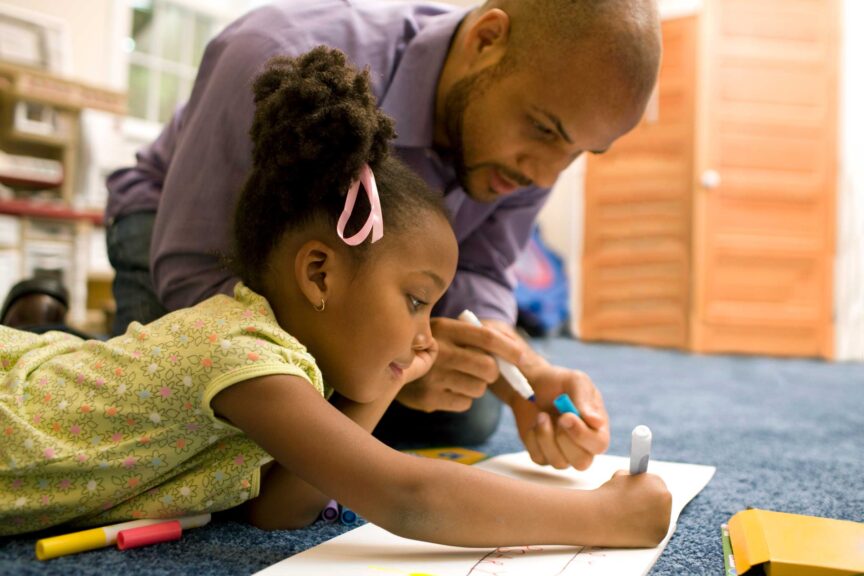As the Sunday School administrator and a teacher at our little church, I had my moments of questioning my purpose. There were many Sundays that were smooth sailing and finished well.
However, there were also Sundays when teachers were no-shows, kids would break out into a literal fistfight, or a child would have a meltdown in the middle of class. Those days I would ask God, “Are you sure you want me to do this? I’m not sure I can.”
Then the Holy Spirit would simply remind me, “Just love them. You can do that.”
I could do that! That’s what inspired me to teach in the first place, and I soon learned that love was truly what these children needed. Whether they came from an affluent family or were well behaved or not, every child in my ministry needed to be loved.
My purpose was to love them deeply, and to love them was to share Jesus with them in ways that magnified what I was teaching them about Him and His grace.

On Purpose
God created us all with intent. David wrote about this in Psalm 139. He so eloquently describes God’s fashioning of his being in his mother’s womb. We are reminded that God fearfully and wonderfully made each of us.
God created us in honor and set us apart for a special mission He had planned for us from the beginning. In Ephesians 2:10 we read that we are God’s workmanship—His masterpiece—and that we have been created to do His work. You are walking in that verse as you show up and give yourself to the children you serve.
For a Purpose
Each of us has a different way in which we will carry out our mission to serve, but we all have the same purpose. Jesus shared and modeled love. God loves everyone and wants to be with us always.
When I think of John, I think of him as the apostle of love. His letters speak about love. He is the one who tells us straight up, “God is love” (1 John 4:8), and he emphasizes that our purpose is to love one another.
I encourage you that whatever the curriculum says to teach on a given day, the foundation that supports and strengthens that message is love.
As you love the children you serve, you will be showing them Christ’s heart. They will relate your love for them to God’s love for them. Not only will they hear that Jesus loves them, but they will also see it demonstrated. Grace is love in action.
I encourage you that whatever the curriculum says to teach on a given day, the foundation that supports and strengthens that message is love.
There are several practical ways that you can demonstrate love to the children in your class such as getting to know them and their families personally, praying with them, and encouraging them in whatever they do.

The Importance of Grace
As you model God’s grace, the leaders, children, and their families in your program will learn about grace. Because of our work/reward culture, children often understand discipline and punishment much more than they understand the concept of grace.
Church leaders have the opportunity to teach kids the extreme grace, and therefore love, of God, so when they deal with the reality of the world, they will see the vast difference between the world and God. We all need to trust that we can go to God when we are falling apart.
A solid way to build that assurance in God is to make it more than obvious to the kids we serve that God loves them and welcomes them no matter what they have done or what they are going through.
God Knows Us Intimately
It can be difficult to believe that God loves us unless we are convinced that He would still say that if He fully knew us. I don’t think we worry He doesn’t know about all the good stuff; we worry that He might see the bad stuff and decide we aren’t worth loving.
How do we teach children that God knows and loves them? We can start with some Scriptures that explicitly say that He does. The Bible has numerous verses that talk about God knowing the people He created.
- Psalm 139 explains how intimately God knows each of His children.
- God tells Moses that He knows him by name. (Exodus 33:12, 17). God knows every child’s name.
- In the Book of Matthew, Jesus tells His disciples that He knows how many hairs are on their heads! (Matthew 10:30).
Setbacks and Triumphs
We can encourage leaders to explain to the kids they serve that God designed them with unique and special talents. He has given them everything they need to fulfill their purpose in life. He prepared a path for them before they were ever born, and God gave them what they will need to accomplish their purpose along that path.
God knows all the great things about each child, but He also knows they will make mistakes and have setbacks. The fact that God sent Jesus to redeem us proves that He knows our failures and flaws. It also proves that He loves us. If kids are convinced that God truly loves them despite their shortcomings, they will not doubt that He truly knows them.
Ultimately it will be by faith that they truly accept that God knows them and loves them. However, as you lead with grace, demonstrate love, and spend time in their lives you will have a profound effect on the development of that faith. Your purpose will be fulfilling, and you will say, “I can do this!”











